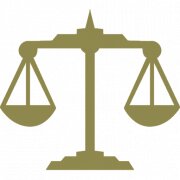Best Constitutional Law Lawyers in Switzerland
Share your needs with us, get contacted by law firms.
Free. Takes 2 min.
Or refine your search by selecting a city:
List of the best lawyers in Switzerland
About Constitutional Law in Switzerland
Constitutional Law in Switzerland is fundamentally concerned with the principles and rules that organize the Swiss state. It involves the Swiss Federal Constitution, which lays out the fundamental rights of individuals, the allocation of roles and powers between different levels of government, and the procedures for governance. With a strong emphasis on direct democracy, the constitution empowers citizens to participate in referendums and initiatives that can influence constitutional amendments. Furthermore, it ensures the protection of human rights and defines the structure and functions of the federal, cantonal, and municipal governments.
Why You May Need a Lawyer
Engaging a lawyer specializing in Constitutional Law in Switzerland may be necessary in several situations. Common scenarios include challenging legislation that might violate constitutional rights, navigating issues related to public referendums, or when fundamental civil rights and freedoms need defense or clarification. Lawyers can also assist in cases involving the interpretation of constitutional jurisdictions, human rights violations, and the balance of power between federal and cantonal authorities.
Local Laws Overview
Swiss Constitutional Law encompasses several key aspects specific to its local governance system. The Federal Constitution is the supreme law, ensuring the protection of fundamental rights such as freedom of expression, assembly, and religion. Switzerland's unique political structure includes strong cantonal autonomy, and each canton has its own constitution, which must align with the federal one. Citizens have mechanisms like initiatives and referenda to suggest or reject changes to laws, emphasizing Switzerland's commitment to direct democracy. Furthermore, constitutional cases may arise in areas where individual rights are perceived to be under threat or when laws are contentious with respect to their federal or cantonal compliance.
Frequently Asked Questions
What is the Swiss Federal Constitution?
The Swiss Federal Constitution is the principal legal document that defines the framework of the Swiss state, establishing the fundamental rights of citizens, the organization of the state, and the separation of powers among different state authorities.
How does direct democracy function in Switzerland?
In Switzerland, direct democracy allows citizens to participate actively in political decision-making through tools like referendums and popular initiatives. These mechanisms enable citizens to propose changes to the constitution and laws or accept/reject decisions made by the parliament.
What are the main rights protected under the Swiss Constitution?
The Swiss Constitution guarantees numerous rights, including but not limited to the right to life, freedom of expression and assembly, protection from arbitrary arrest and detention, and equal treatment under the law.
How can constitutional law conflicts be resolved?
Conflicts can often be addressed through judicial review in Swiss courts, where the constitutionality of legislation or administrative actions is evaluated, ensuring compliance with fundamental constitutional provisions.
Can cantonal laws differ from federal laws?
Cantonal laws must comply with federal law. While cantons have significant autonomy and can enact their own laws, these laws cannot conflict with the Federal Constitution or federal statutes.
When should I consult a constitutional lawyer?
You should consult a constitutional lawyer if you face issues involving potentially unlawful legislation, infringements of your fundamental rights, or conflicts between cantonal and federal law.
What is the role of the Swiss Federal Supreme Court?
The Swiss Federal Supreme Court is the highest judicial authority in Switzerland, reviewing decisions for conformity with federal laws and constitutional principles.
Can citizens amend the Swiss Constitution?
Yes, citizens can propose amendments through a popular initiative. If successful, these proposals can lead to a nationwide vote to accept or reject the proposed constitutional changes.
How are human rights protected in Switzerland?
The protection of human rights is a core element of the Swiss Constitution. Additionally, Switzerland is a signatory to various international human rights treaties, bolstering domestic protections through international law.
What's the difference between a referendum and an initiative?
An initiative allows citizens to propose constitutional amendments, while a referendum can challenge decisions made by the parliament, allowing citizens to approve or reject laws or amendments.
Additional Resources
To learn more about Constitutional Law or seek assistance, consider consulting the following resources: the Swiss Federal Chancellery for constitutional texts, the Federal Office of Justice for legal information and mediation services, and the Directory of Swiss Law Firms for attorney contacts. Organizations like the Swiss Human Rights League can also provide valuable insights and support.
Next Steps
If you need legal assistance in Constitutional Law in Switzerland, start by identifying a qualified lawyer specializing in this field. Prepare all relevant documents and outline the issues or questions at hand. Schedule a consultation to discuss your case and receive tailored advice on proceeding with legal action or resolving constitutional disputes. Always ensure to consult with multiple experts to get well-rounded perspectives before making significant legal decisions.
Lawzana helps you find the best lawyers and law firms in Switzerland through a curated and pre-screened list of qualified legal professionals. Our platform offers rankings and detailed profiles of attorneys and law firms, allowing you to compare based on practice areas, including Constitutional Law, experience, and client feedback.
Each profile includes a description of the firm's areas of practice, client reviews, team members and partners, year of establishment, spoken languages, office locations, contact information, social media presence, and any published articles or resources. Most firms on our platform speak English and are experienced in both local and international legal matters.
Get a quote from top-rated law firms in Switzerland — quickly, securely, and without unnecessary hassle.
Disclaimer:
The information provided on this page is for general informational purposes only and does not constitute legal advice. While we strive to ensure the accuracy and relevance of the content, legal information may change over time, and interpretations of the law can vary. You should always consult with a qualified legal professional for advice specific to your situation.
We disclaim all liability for actions taken or not taken based on the content of this page. If you believe any information is incorrect or outdated, please contact us, and we will review and update it where appropriate.
Browse constitutional law law firms by city in Switzerland
Refine your search by selecting a city.













